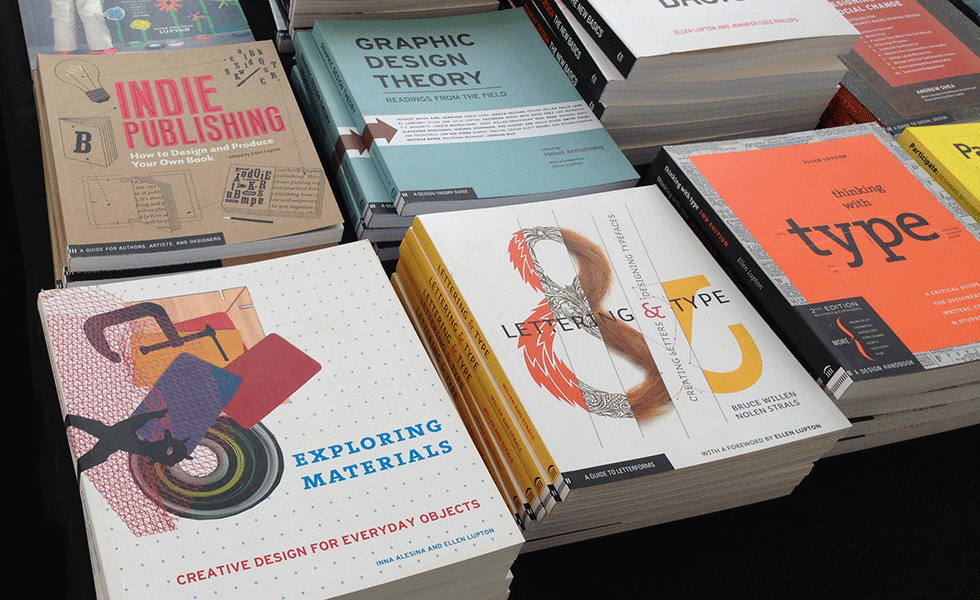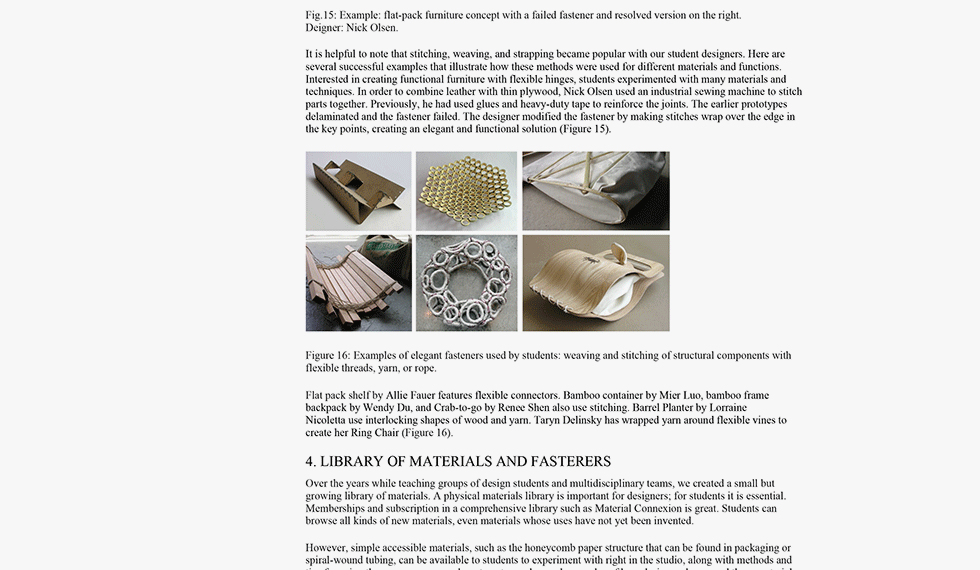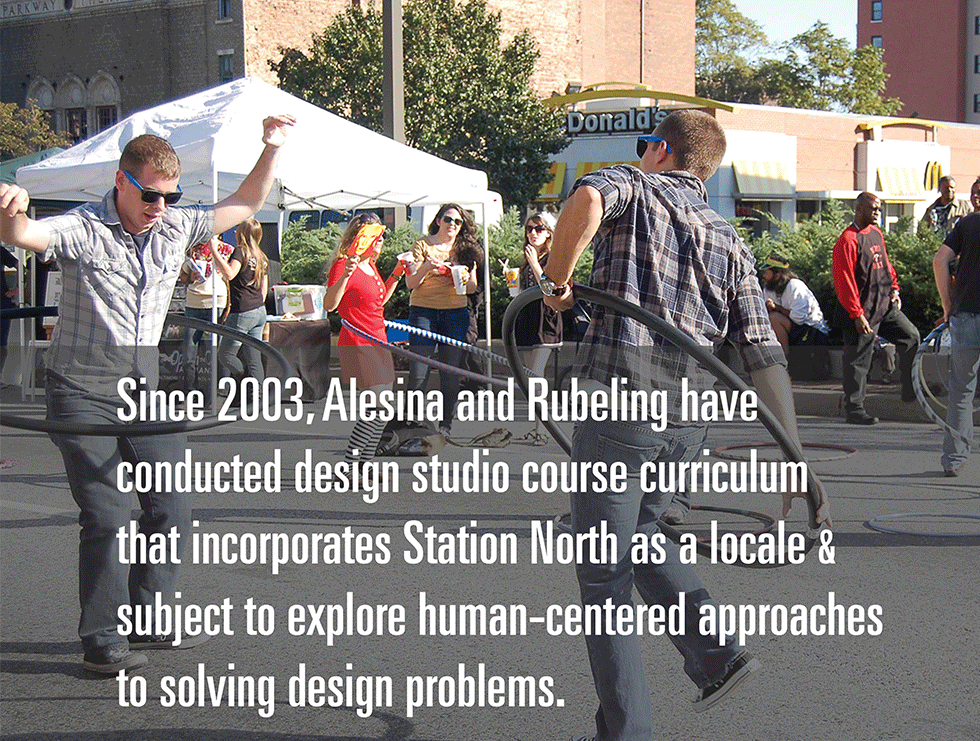Exploring Materials: Creative Design for Everyday Objects by Inna Alesina and Ellen Lupton

Few words from the book: “Materials are like words. The richer your design vocabulary, the more distinctive the design solutions you can express. Sketching ideas with a pencil or rendering them with computer software are useful experiences, but there is no substitute for confronting physical forms and materials directly.”
Sketching with materials and overcoming the fastener problem/paper

Many products get disposed of because the fasteners do not enable the product to be easily repaired. Designing for durability, disassembly, repair, and upgrading can extend the life of the product, yielding a more sustainable solution. Mechanical fasteners, such as rivets or stitching, tend to be more repair-friendly than glue.
This paper examines ways to focus the design process on the type and placement of fasteners in order to generate robust solutions
